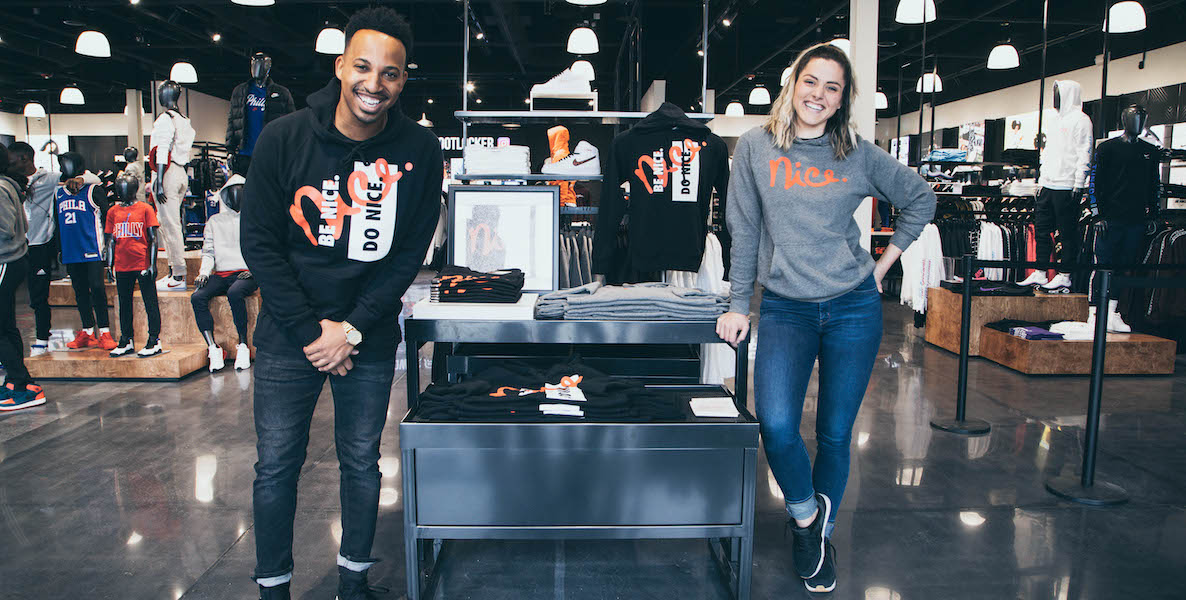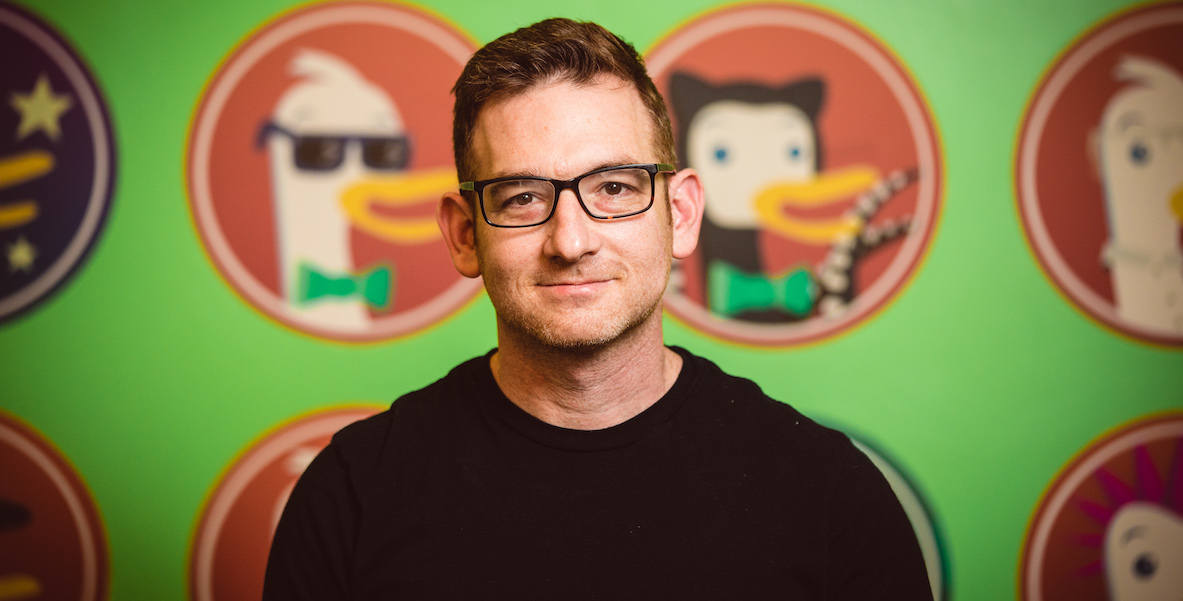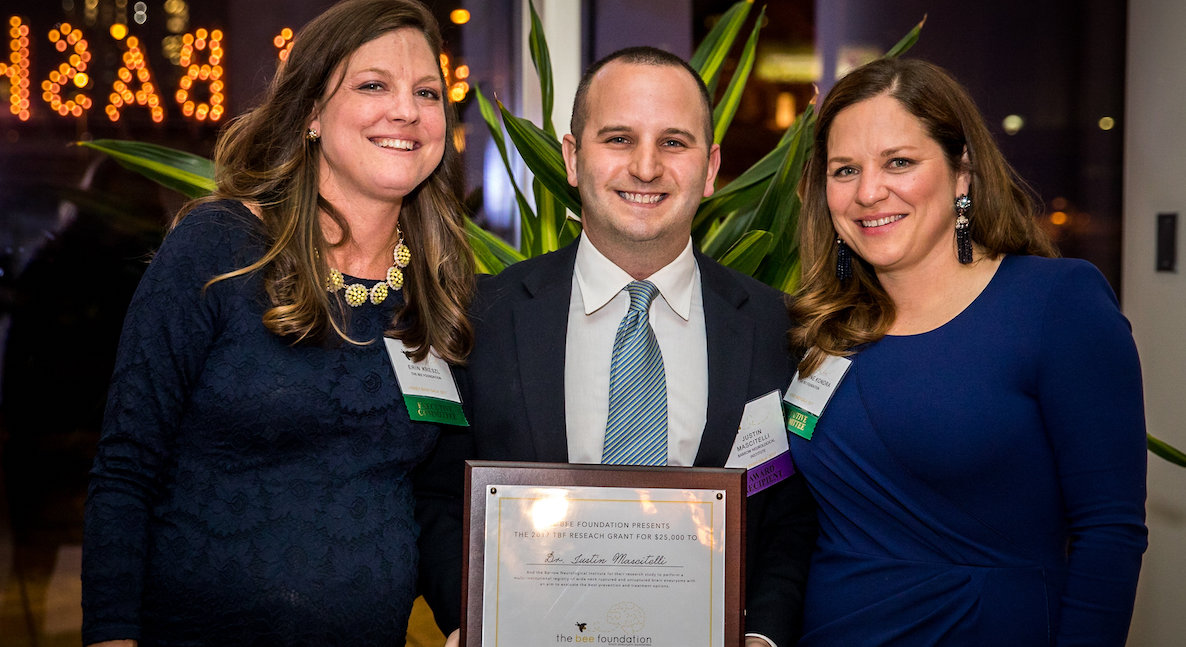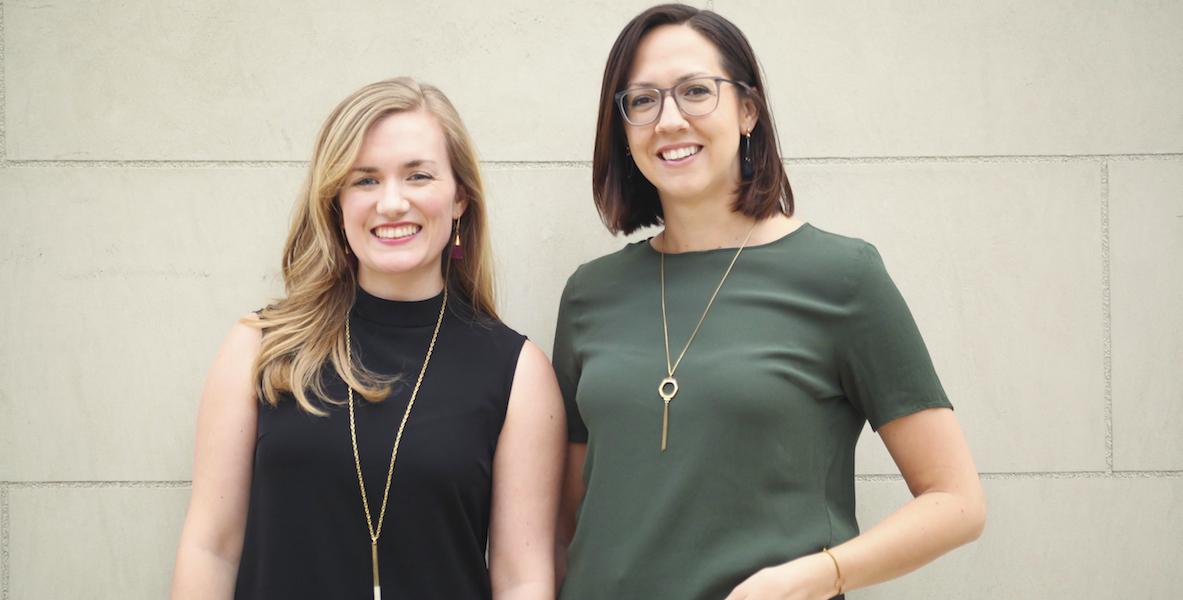When the Rana Plaza clothing factory in Bangladesh collapsed in the spring of 2013, killing more than 1,100 people and injuring another 2,500, it was the deadliest garment factory accident on record.
More than 8,000 miles away, two American University grad students, Erin Houston and Emily Kenney, heard the news and felt outraged, bereft. Kenney, then studying international development, had spent years working with grassroots community organizations in Central America; Houston, studying social enterprise, had been working in corporate media. Both wanted to do something, but felt overwhelmed.
“It started as this very personal frustration of wanting to shop ethically. I’d pick something up in a store, see that it was made in Bangladesh, put it down, and walk away with nothing,” Kenney says. She and Houston wanted things that fit their personal style and budget, and made a positive impact—but couldn’t find items that checked all three boxes without doing hours of research. “At one point, I found myself downloading hundreds of pages of reports trying to track a supply chain of a t-shirt, and I thought: I’m in grad school and working full time—how am I going to read this?” Kenney says.
“Our goal is to be the authority on conscious lifestyle,” Houston says. “Right now, that means selling clothes. But it also means educating our customers—and the industry.”
As grad school wound down—Kenney prepared to work in India and then Cambodia, while Houston continued on in media—the women met for coffee, lamenting how little progress had been made when it came to ethical shopping.
Become a Wearwell memberDo Something
“There’s no one certification or one group looking at standards,” Houston explains. There are groups looking at organic materials, non-toxic materials, fair trade practices. There was the the Accord on Fire Safety and Building in Bangladesh [an agreement between brands and trade unions to work towards a safe and healthy garment and textile industry in Bangladesh], which, Houston says, over the last year has started to fall apart. What was missing in the fashion world, the women realized, was a clearinghouse of sorts, a stamp of approval and reassurance that you could feel good about the clothes on your back, without spending a fortune or compromising your personal style.
So they decided to create one.
In February, they launched Wearwell, a clothing subscription service akin to Stitch Fix, the popular clothing delivery service—with a twist. All products come from vendors who provide living wages for workers and meet standards of safety and sustainability. For a monthly membership fee of $8.50, a stylist—a human, not a bot—will select six pieces of clothing, jewelry, or accessories for you, based on a profile you create about your sizes, style, budget, and social values; send you a link to all samples; and give you the option to add whichever items you like to your cart for purchase.
Right now, Wearwell works with about 30 vendors worldwide, like People Tree and Penh Lenh, buying some products wholesale and others on consignment; Houston and Kenney source the items, and their stable of freelance stylists make their picks from among them, keeping customers’ budgets and preferences in mind. Products range from $15 to upwards of $200. And if you make a purchase, your monthly membership fee goes towards it.
Support fashion revolutionDo Even More
The partners spent the last few years working from Houston’s parents’ basement in Delaware, tinkering with business models before officially starting Wearwell, which is unique from its competitors in a few ways. Its carbon footprint is smaller than Stitch Fix, since they don’t send boxes with physical goods for try-on and return; instead, stylists curate a personalized list, with links to items (along with styling notes and manufacturer info). And its price-point is friendlier than, say, Goop, which showcases the kind of luxe, sustainable fashion that can cost upwards of four figures.
There’s a misconception, the women say, that beautiful, ethical fashion has to be expensive. In fact, Kenney points out, in a recent article in The Guardian, “Oxfam said [that] if brands absorbed the cost of paying a living wage, it would amount to [an increase of] less than 1 percent of the garment price.”
“At one point, I found myself downloading hundreds of pages of reports trying to track a supply chain of a t-shirt, and I thought: I’m in grad school and working full time—how am I going to read this?” Kenney says.
Now with an office in Center City, Wearwell has more than 250 clients from around the U.S. Down the road, Houston and Kenney would consider expansion—perhaps to menswear, home, kids, or an international market. If the women stay on their current course, they’re prepared to be profitable within three years; if they expand to other demographics, that projection could change.
Whatever direction Wearwell goes, Houston and Kenney are committed to staying in Philly. They recently joined Philly Startup Leaders and also became a part of Ben Franklin Technology Partners’ portfolio.
Articles by Jessica PressRead More
“The thing that we really love in Philly, beyond the cultural fit for us, is the opportunity to create jobs in a city that really can use them,” Houston says. She points to the potential to open a warehouse that could employ people in need of transitional opportunities, like returning citizens or refugees.
Above all, the women hope to provide more than a fashion service—they want to revolutionize the industry, enlightening manufacturers and enabling customers to shop their values.
“Our goal is to be the authority on conscious lifestyle,” Houston says. “Right now, that means selling clothes. But it also means educating our customers—and the industry.”
Co-founders of Wearwell, Erin Houston and Emily Kenney






